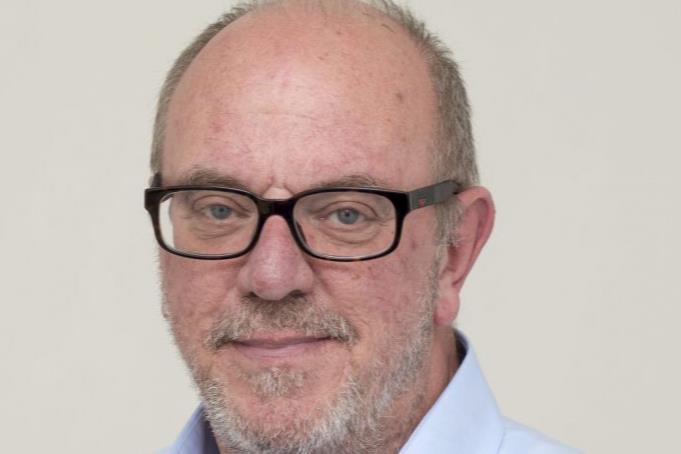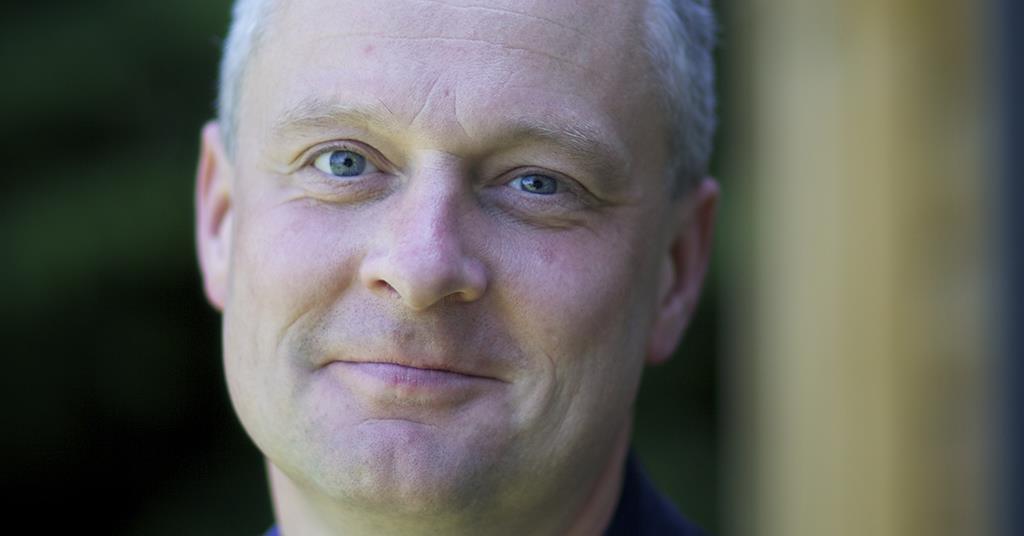Cowper’s Cut 366: Brief expectations


Most journalism is, alas, crap. British media went to shit first: British politics followed. There are some good practitioners still around, but this isn’t a great era for this trade.
And while it’s sub-optimal, sometimes the chosen messenger is as important or as revealing as the chosen message.
Which is to say that this second leaking of a major piece of NHS political and policy news about the possible fate of NHS England board directors, and specifically the likely ousting of finance director Julian Kelly, to Denis Campbell of The Guardian within as many weeks deserves our consideration.
The useful idiot’s useful idiot
Denis may have many fine qualities, but his journalism and analysis are not among them. And his predictive track record stinks.
He is well known among people in the world of NHS communications as an easy and remarkably uncritical briefee.
So who briefed this piece on NHS England’s senior management team restructuring plans to Denis, and why? What did they think was in it for them?
The triggering event was the announcement of Professor Sir Steve Powis’ resignation as NHSE medical director, which will have taken almost nobody by surprise. He has been talking about standing down for about a year.
The Guardian piece purports to know the planning and thinking of Mr In-Between himself, NHS England’s incoming boss Sir James Mackey. But, 1. does it really? And, 2. Mr In-Between is talking to Denis?
Sir James is well known in and around the service for many reasons (excellence as a provider chief executive; abrasive approach when he wants to use it; having greatly loathed his last national job), but absolutely none of them is as a man who briefs the media.
He is not a big fan of the media: having rarely perceived himself to be likely to need them, he is very unlikely to feed them.
Kelly’s a Treasury man, and there’s a spending review on
The likelihood that Sir James would want to brief against director of finance Julian Kelly at the time when a Treasury spending review is under way is particularly low. As the piece notes, Kelly used to be the Treasury’s director-general of public spending and finance. His network and reputation there are not things that a person with good political nous would want to be seen to cremate publicly.
What else in the piece is of note?
The eighth paragraph is as telling as it is short: “Sarah-Jane Marsh, NHS England’s deputy chief operating officer and national director of urgent and emergency care, is likely to remain in her post.”
Mmmmmmm.
No other NHSE national director’s job security is mentioned in the piece: not even media briefing superstar Chris Hopson. That makes this look very strange indeed, and one would greatly hope that this was nothing to do with her.
Whoever was responsible for it, their decision to brief against Mr Kelly in this manner reflects poorly on their political sense. It also promises to make finding another national director’s job of finance very hard indeed, if this kind of stupidity is perceived to be part of the expected terrain.
As to Denis’ framing of a ‘big clearout’, erm, the chair has just been pushed out; The Woman In Black ghosted herself before being pushed; and the medical director has just resigned. It has, in other words, already happened.
Labour’s bonfire of the employment regulations?

Wheeler is credible, so she will have been briefed this by someone credible. It just makes very little sense, suggesting that “it is understood that Sir James Mackey, the new NHS England chief executive, is looking at how to make it easier for providers to sack people as he starts reforming the service. He is considering how a new national voluntary redundancy scheme could streamline that process, and make it faster and easier for NHS trusts and integrated care boards, which fund health services locally, to lay people off”.
Excuse me? The NHS already has the long-established Mutually Agreed Redundancy Scheme (‘A MARS a day helps you work, rest and play’) provisions, for most cases that would seem likely to arise.
Combining this with the above briefing on the fate of Julian Kelly, one looks at either the Department For Health But Social Care or NHS England (or indeed both) and cannot but conclude that the policy and political right hand doesn’t know what the further-right hand is doing.
Nicholson: Streeting needs only one health SpAd - Mackey J

The first chief executive of the NHS Commissioning Board (later to morph and metastatise into NHS England), Sir David Nicholson has carefully limited his interventions since his time in the national job.

He is always worth listening to, though. And so his comments to Health Service Journal editor Alastair McLellan about the utmost importance from Sir James Mackey of becoming Health Secretary Wes Streeting’s “chief policy advisor” are worth heeding.
Nicholson told HSJ, “any policy papers that went to the secretary of state used to – literally – have my stamp on them, which said this has been supported, or not, by the chief executive of the NHS.” This “counted for something” within government, where there were always many competing voices for the health secretary’s ear, he said, also noting that “having a divided camp does not do you any good at all with the Treasury”, as any “sliver of a difference” would be exploited to weaken the NHS’s negotiating stance.
Sir David also told HSJ that if there were “multiple voices [from the centre] talking to the system, then it’s a big problem”. Suggesting this had become a greater problem over recent years, he said: “everyone needs to be on the same page. The NHS watches for nuance [and will notice] any kind of differences. The discipline involved between the secretary of state, Jim [Mackey] and whoever the permanent secretary is going to be is going to be enormously important.”
Sir David’s take on the independence of NHSE is highly sceptical. He told HSJ that the idea that NHSE had “independence” from government was “all nonsense” – and that it was “unreasonable” to expect ministers to stay out of the most important clinical and operational decisions.
As such, Nicholson he said he was “absolutely amazed” when NHSE was given the responsibility “of allocating resources, which in lots of ways is essentially a political, not a management, decision”. Plenty to debate there, not least on what this tells us about why promised shifts to prevention never happened either pre-or post-NHS Commissioning Board/NHSE.
Sir David warned against “slashing and burning” the NHSE workforce any more than already planned until there was “a clear plan and resource envelope” for how the service would be run: “if you turn everything upside down, all that will happen … is that you lose all your best people”.
Here comes Austerity 2.0
The timing of Nicholson’s intervention on finance was characteristically cunning. Because it looks very much as if “slashing and burning”, if not Austerity 2.0, may be on their way.
That seems to be the upshot of the joint letter to NHS leaders from The Woman In Black and Mr In-Between this week. Billed as an ‘update on the Planning Round’, it was an invitation to central London this Thursday for a big, old-school, en masse in-person bollocking over financial control.
There is a bitter irony here. For more than a few years, NHS England and national political leaders have incentivised NHS financial lying.

And yes, capital-to-revenue transfers are financial lying in action. I may on occasion have mentioned that financial lying is bad.
Well, now financial lying is going to be Officially Bad. What a relief that will be.
Their letter tells a grateful leadership community that “our planning for 2025/26 is especially important in developing plans that give us confidence that we will deliver on our key commitments.
The first cut submissions made on 27 February do not meet this expectation with, like previous years, a very significant financial deficit (£6.6 billion when deficit support is stripped out) and limited confidence of delivery of operational expectations.
“We cannot allow this to continue and drift into the financial year, so we have been considering a fundamental reset of the financial regime and accountability so that we can all, quickly, get a grip of this situation and give us the best chance of delivering what our population and our staff need from us.
“So, with Richard and Penny’s agreement, we have decided to re-purpose the event on Thursday 13 March and invite CEOs to join Chairs to discuss how this reset needs to work, with the aim of all leaving with clarity of expectations and confidence in delivery.”
What could conceivably go wrong?
We are on the road to the Streeting Health Service - always assuming that Wes’ dreadfully low self-esteem won’t hinder him too much.
Buckle up: this is going to be quite a ride.
Recommended and required reading
The House Of Commons Library is one of our great institutions: their latest update report on NHS performance is a salutary read.
Latest dose of rumours about the use of PFIesque mechanisms to address the £13 billion NHS capital and maintenance backlog appears in the Financial Times.
The great Nick Timmins and Professor Chris Ham’s joint blog for the Kings Fund on the changes atop NHS England is a decent summary.
Medical Defence Union survey shared with The Guardian suggests that one in three NHS doctors works when dangerously tired. Seems remarkable, if not highly questionable.
This Boris Johnson Fanzine interview makes surgeon Gabriel Weston’s new book sound intriguing.
One of my first publishing jobs was on Insurance Times: their piece on the most complained-about insurers is a vital read. Yes, it’s mainly health insurers.
Relatively sensible Observer profile on Phillips’ chief innovation officer discusses AI and technology without recourse to extreme hype.
We still haven’t got jetpacks, but The Times asks whether ‘nano-robots’ are coming in healthcare?
Glastonbury headliner Sir David Sloman joins the UK’s biggest private providers Spire as a vice-chair and NED.




